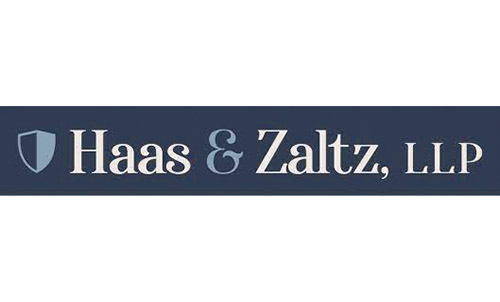
(Courtesy of Haas & Zaltz) A Medicaid Asset Protection Trust (MAPT) is one option a person may consider to protect their assets from Medicaid and nursing homes or long-term care.
A MAPT is an irrevocable trust created during your lifetime. The primary goal of a MAPT is to transfer assets to it so that Medicaid will not count these assets toward your resource limit when determining whether you qualify for Medicaid benefits.
However, creating an irrevocable trust comes with a certain lack of control over the assets you transfer to this trust. Before making such a significant decision, consider some pros and cons to see if this long-term-care strategy is right for you.
Benefits of a MAPT
1. You can still benefit from the assets of a MAPT.
Although transfers of assets to a MAPT cause you to relinquish your ownership and control of them, the finality of the arrangement is not as harsh as it sounds.
In creating a MAPT, you select a person (trustee) who manages the trust assets for your benefit. So, if you transfer investment accounts to the MAPT, you can still receive the income generated from these investments. If you transfer your home, you can still live there. In exchange for giving up control of your assets to a MAPT, your assets no longer count against you for Medicaid eligibility purposes.
2. Your assets are safe from Medicaid and other long-term-care creditors.
Once your assets are in a MAPT and other criteria are met, Medicaid can’t seize them or ask you to spend them down to pay for your nursing home or long-term-care costs. These assets also are not subject to Medicaid’s estate recovery program.
As a result, your heirs can benefit from the assets without the interference of Medicaid or liens it could otherwise file against your estate after you pass.
3. You can choose your beneficiaries.
A MAPT also functions as an estate-planning tool. This is because you can designate who receives what remains of the trust upon your passing. The beneficiaries you choose will receive the assets per the terms of the trust agreement, and the chances of a probate court getting involved are diminished.
In addition, you may be able to retain what is called a “limited power of appointment.” This allows you to change who the beneficiaries of the MAPT will be, should your wishes or family circumstances change.
4. Assets are protected from your beneficiaries’ creditors.
Even though you can designate a MAPT’s beneficiaries now, those beneficiaries do not have full access to the trust’s assets because of how it is structured. This also means their creditors do not have access to it. And, if your child is a beneficiary and is going through a messy divorce, neither does their spouse. You can also designate how bequests to beneficiaries can be used.
5. Protection from capital gains taxes.
A properly drafted MAPT preserves the full capital gains tax exclusion on the primary residence (currently $250,000 per spouse). Later, when a person’s beneficiaries sell the home, it would be valued at the market price at the date of gifting and not at the original purchase price. This can avoid or significantly minimize the capital gains tax that your heirs may owe.
Drawbacks of MAPTS
1. Timing is everything.
For a MAPT to function as intended, it needs to be created in advance to avoid the Medicaid lookback period. In most states, this is five years for nursing home or institutional care. In some states, there may also be a lookback period for community Medicaid care (home aides, local programs etc.).
If less than five years have elapsed since you created your MAPT, you may still be responsible for some or all of your long-term-care costs until sufficient time has passed.
To learn how to protect yourself and your family, visit www.haaszaltz.com or call 845-425-3900. You can also email them at [email protected].










